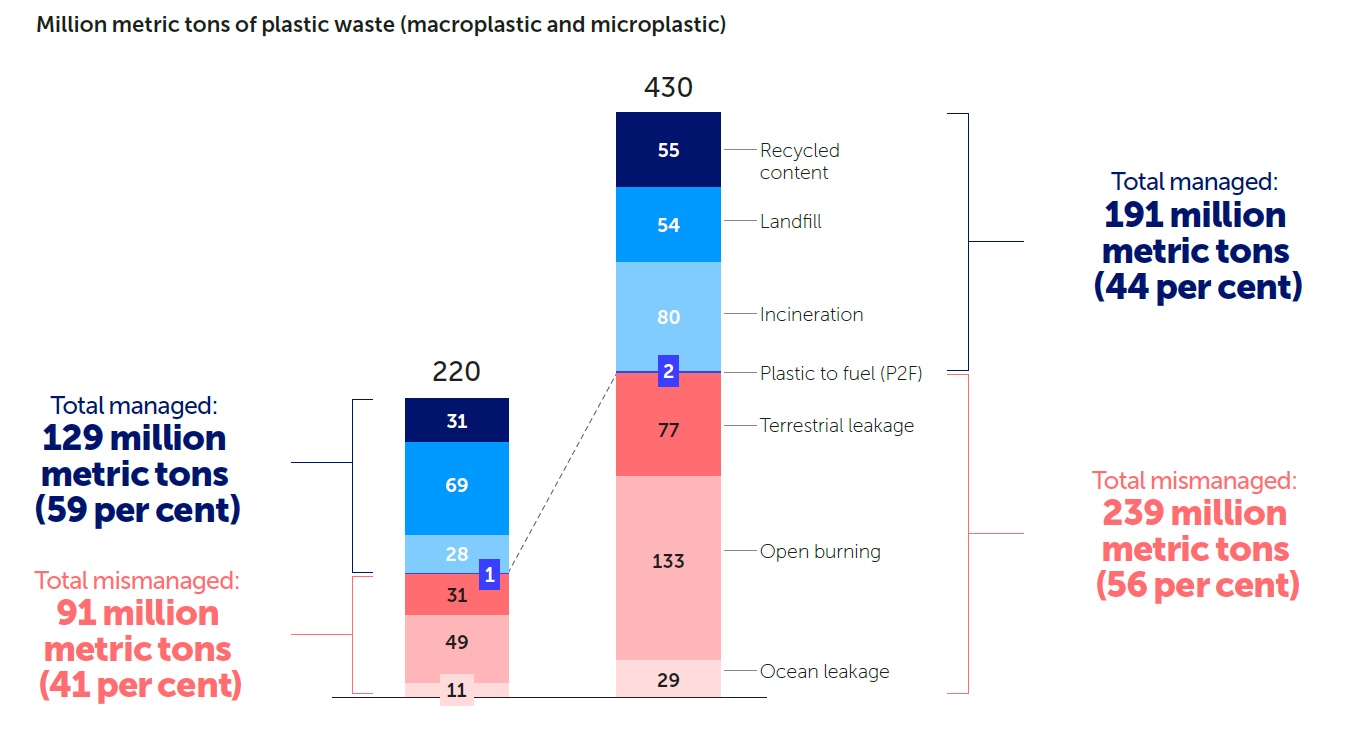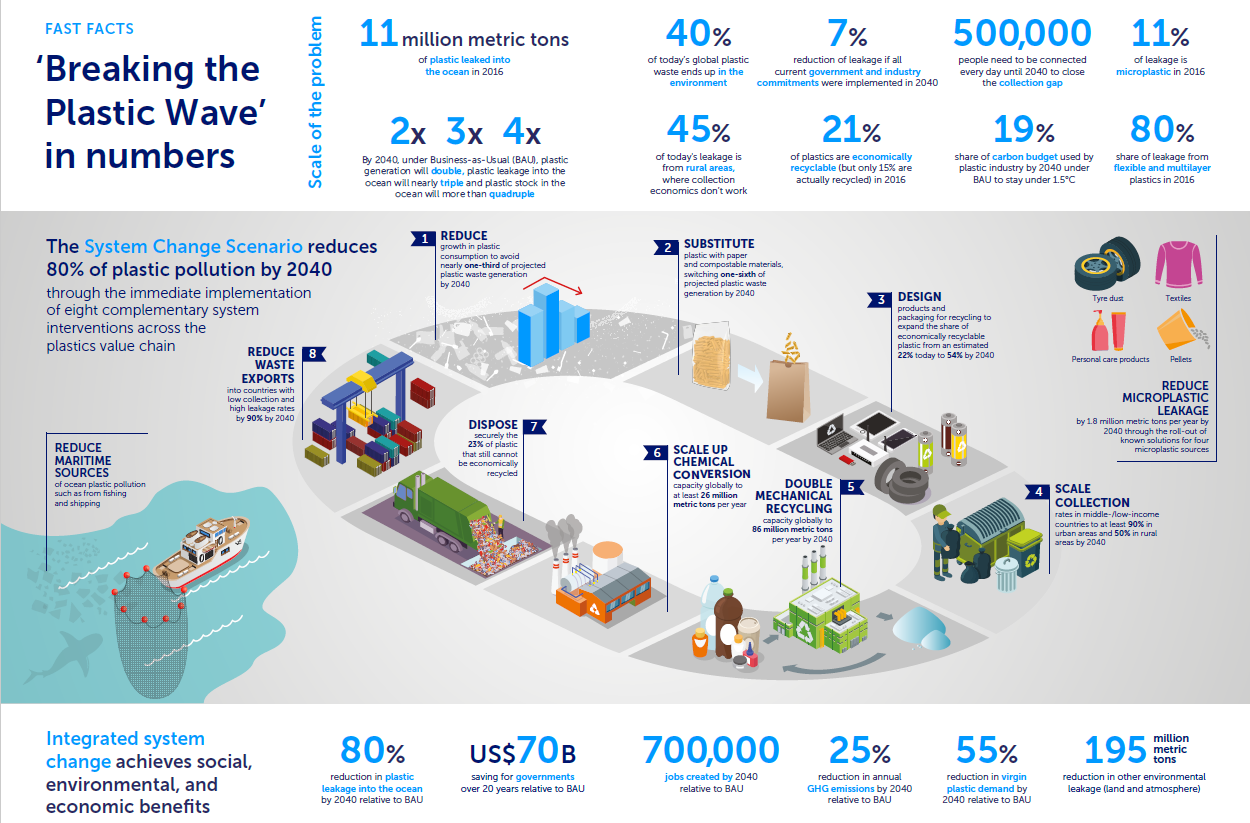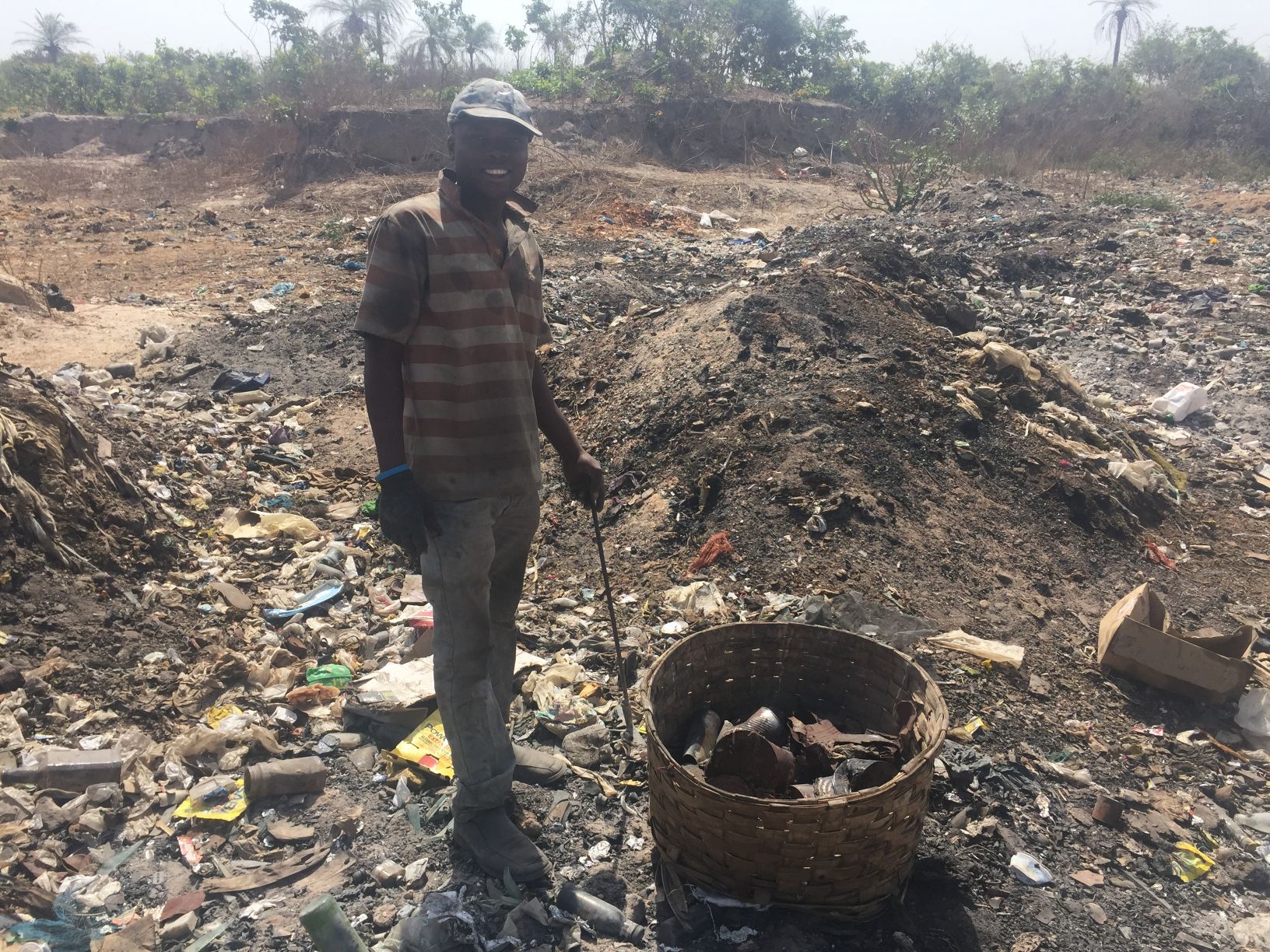What we found out
Our modelling indicates that global capability to collect and safely manage plastic waste will decrease over the next 20 years. Whilst plastic waste generation is projected to grow exponentially, the capability of national and municipal governments to manage it effectively will be outpaced. This overwhelming phenomenon will require people living in the Global South to manage their own waste and face difficult choices between open burning, dumping on land or depositing directly into rivers and coastal waters. The result will be that more than 3 billion tonnes of plastic waste will be mismanaged between 2016 and 2040, if businesses and governments take no action.

Source: 'Breaking the Plastic Wave'
At the heart of this intractable global disaster is the lack of basic waste collection services experienced by approximately 2 billion people worldwide, meaning that 47 Mt of plastic waste is uncollected each year. Exploration of scenarios in the P2O model found that collection of waste by both the formal and informal waste sectors is the single most effective solution to mitigate the flow of plastic pollution over the coming decades. We found that for every one tonne of waste collected, we could prevent 0.18 tonnes of waste from entering the aquatic environment. However, integrated concerted efforts will be needed both before plastic before waste and after: Only with a suite of such systematic combined efforts the amount of plastic reaching aquatic environments can be reduced by almost 80% by 2040, in comparison to taking no action.

Source: 'Breaking the Plastic Wave'
Waste pickers, are an indomitable global workforce, estimated in our model to be responsible for nearly 60% of all plastic collected for recycling: more plastic than all of the formal authorities in the world’s wealthiest nations put together. Yet this 11 million strong workforce (conservative estimate) remains largely marginalised and stigmatised by society, suffering poor working conditions, shorter lives and significant ill health because of their occupation. Waste pickers, the unsung heroes of recycling in the Global South without whom, the mass of plastic entering the aquatic environment would be considerably greater. Thus, it is critical that supportive policies are implemented to eliminate the health and safety challenges and wider societal challenges associated with their activities.

This waste picker specialises in recovery of metals from a dumpsite. As truckloads of waste arrive, they are set-alight to provide access to materials
Approximately 22% (49 Mt) of all municipal solid waste plastic is burned in the open by people whose waste is not collected; by authorities who struggle to manage it; or by waste reclamation specialists who use the process to access metals within the piles of combustible waste. We estimated that without intervention to mitigate the practice that is hugely damaging to human health, the mass being open burned would rise to 31% (133 Mt) of all MSW plastic. Cumulatively this would amount to more than 2 billion tonnes of plastic waste burned between 2016 and 2040.

